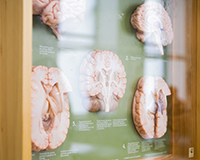The role of experts in courtrooms has been largely studied, particularly the history of legal medicine, mainly issues related to toxicology and forensic psychiatry. Scholarship on this area is still growing: some recent examples are the books by the historians of science T. Golan (2004) and I. Burney (2006) or the studies published by the French historian of law F. Chavanau (2000) Undoubtedly, Mateu Orfila i Rotger (1787-1853) was one of the key historical actors in shaping the role of medical experts in nineteenth-century courtrooms. Moreover, he was an important textbook writer, successful teacher, author of very popular books on toxicology. Many of his books are available at the BIUM website. The main objective is to prepare a biography of Mateu Orfila dealing with the three main topics of this project: science teaching, popularisation of science and scientific expertise in courtrooms. Besides continuing the mentioned research lines, we aim to prepare a critical edition of Orfila’s letters, which are dispersed in various public and private archives (mainly in Spain, France and England). We want to advance in two particular studies related to scientific disciplines, controversies and law: Orfila’s research on the absorption of poisons and the associated controversy with François Magendie, and his pioneer research on blood stains (and the first polemic with François V. Raspail). In both cases, there are promising issues to analyse the tensions between the different experimental cultures associated with toxicology, expert testimony and law during the 19th century. Moreover, the project will analyse Orfila’s ideas on the reliability of legal proofs and the place of toxicological expertise in courtrooms, as expressed in his Traité de Toxicologie. All these studies, combining editions of sources, bibliographies with monographic papers, will conclude in a biography of Mateu Orfila. Finally, our study aims to offer clues for the analysis of middle nineteenth-century Spanish toxicology, with special attention to Pere Mata, who was a pupil of Orfila and a very influential actor in the Spanish context. By doing so, we seek to offer some initial hypotheses on the different configuration of 19th century French and Spanish toxicology, a comparative approach provided by the studies on science in the European periphery (like those encouraged by the group STEP. By studying toxicologists, science teachers and science popularizers, we aim to offer a comparative view of the different ecosystems in which scientific experts play a major role in contemporary societies.
Bertomeu Sánchez, José Ramón
Ministry for Science and Innovation











